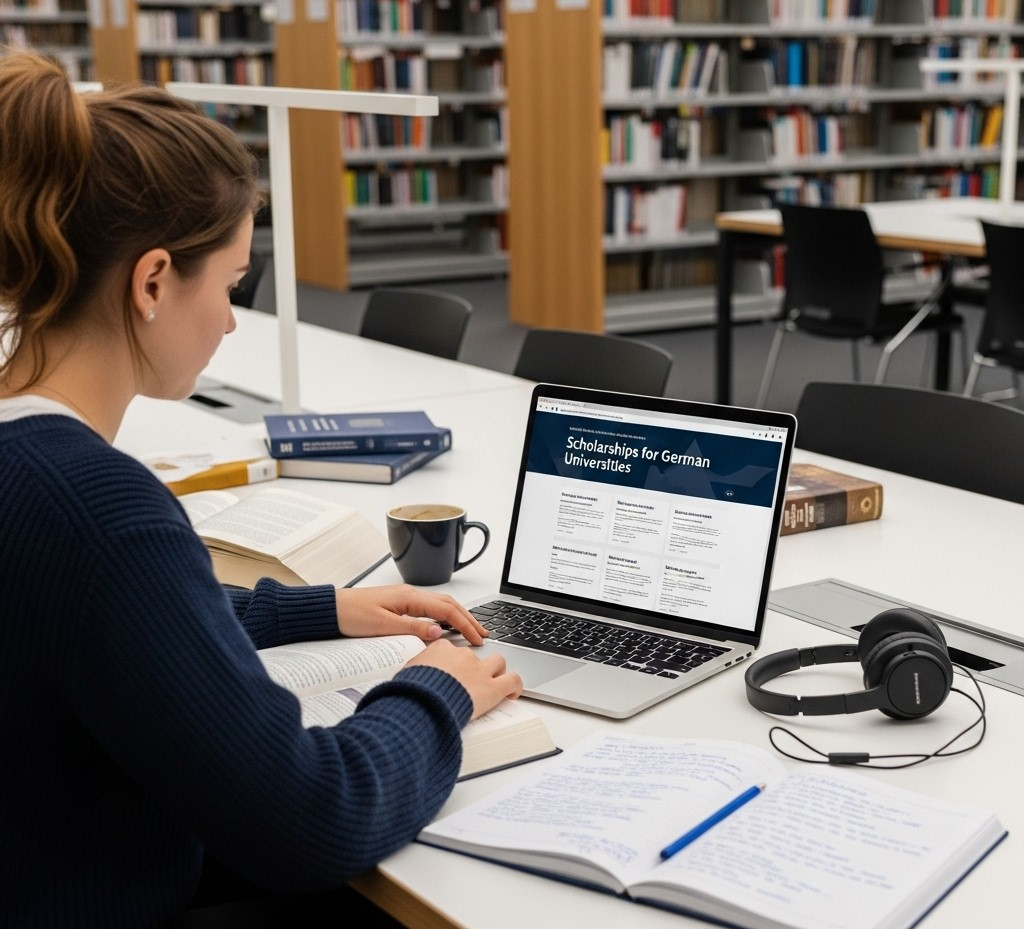Are you dreaming of furthering your education at a world-class institution in the heart of Europe? The prospect of studying in Germany, with its rich academic tradition and innovative research, is a compelling one. But what about the cost? This is where understanding the landscape of Dortmund University Germany scholarships becomes a game-changer. For international students, the 2026 Spring batch offers a fantastic opportunity to secure financial and academic support, making your dream of studying in Germany not just a possibility, but an affordable reality.
This guide is designed to be your trusted companion, demystifying the scholarship process for Technische Universität Dortmund (TU Dortmund) and beyond. We’ll break down the key scholarship options, walk you through the application requirements, and share practical advice to help your application stand out from the crowd. I’ve seen many successful applicants focus on showcasing not just their academic prowess, but also their passion and commitment—qualities that German foundations value immensely.

Embarking on a scholarship journey for TU Dortmund’s 2026 Spring batch is an exciting and attainable goal. The process requires diligence, but the rewards—a world-class education with minimal financial burden—are immense. Remember to start your research early, polish your application documents, and let your genuine passion for your field and for studying in Germany shine through. The path may seem daunting, but with the right preparation and a can-do attitude, you can successfully navigate the process and take your next big step toward a bright future. TU Dortmund Official Scholarship.
The Scholarship Landscape for TU Dortmund
While TU Dortmund itself is a public university with no tuition fees for international students, you will still need to cover living expenses, health insurance, and administrative fees. This is where scholarships step in, offering crucial financial and sometimes, non-material support. The key is to look at scholarships from three different angles: university-specific, national, and external third-party foundations. DAAD Scholarship Database.
University-Specific Scholarships
TU Dortmund offers a range of scholarships and prizes specifically for its students. These can be for outstanding academic performance, or for students in special situations, such as those with a refugee or immigrant background.
- Deutschlandstipendium: This is a fantastic option for high-achieving students from all disciplines. Half of the funding comes from the German Federal Government, and the other half from private sponsors. It’s a great way to receive €300 per month for at least one year. Eligibility is not just about your grades; it also considers social commitment and personal circumstances.
- DAAD Scholarships: The German Academic Exchange Service (DAAD) is a powerhouse of scholarships, and TU Dortmund is a significant partner. The university’s International Office can provide information on specific DAAD scholarships for international students. These often target different groups, from those needing support to finish their degree to those who demonstrate special engagement in an international context.
National and External Scholarships
In addition to university-specific options, Germany has numerous foundations that award scholarships to students at any university, including TU Dortmund. This is a crucial area to explore, as it significantly expands your chances of success.
- DAAD (German Academic Exchange Service): The DAAD is the world’s largest funding organization for international students and researchers. Their database is the first place you should look. They offer scholarships for various master’s and PhD programs, including specific ones for development-related fields like the SPRING – Regional Development Planning and Management program at TU Dortmund. For the 2026 Spring Batch, be aware of specific program deadlines, which for some DAAD EPOS programs can be as early as May 2026 for the following winter semester.
- Foundation Scholarships (Stiftungen): Germany’s political, religious, and business-affiliated foundations are a rich source of scholarships. Organizations like the Konrad-Adenauer-Stiftung, Heinrich-Böll-Stiftung, and Friedrich-Ebert-Stiftung offer scholarships based on academic merit, social or political engagement, and even religious affiliation. Many of these foundations accept applications from international students, so it’s essential to research their specific criteria.

The Roadmap to a Standout Application
Securing a scholarship is a competitive process that requires meticulous preparation. Here’s a step-by-step guide to help you put your best foot forward.
Step 1: Research, Research, Research
Start early. I can’t stress this enough. The application periods for many scholarships are a full year in advance. For the 2026 Spring batch, many application deadlines will fall in late 2025 or early 2026. Use official resources like the TU Dortmund scholarships page and the DAAD scholarship database to find programs that match your academic background and personal profile. Pay close attention to eligibility requirements, including academic grades, language proficiency, and any specific country or field-of-study criteria.
Step 2: The Core Documents
Every scholarship application has a set of core documents. Preparing these well in advance will save you a lot of stress.
- Transcripts and Certificates: You will need officially notarized copies of your academic records. This includes your high school diploma and university transcripts. Make sure to get these translated into English or German by a certified translator.
- Motivation Letter: This is your chance to tell your story. Don’t just list your accomplishments. Explain why you are passionate about your chosen field, why you want to study at TU Dortmund, and how this scholarship will help you achieve your goals. Connect your past experiences to your future aspirations. This is where your unique personality and drive will shine through.
- Curriculum Vitae (CV): Use the Europass format, which is standard in Europe. It should be a clear, concise, and professional summary of your educational background, work experience, and any volunteer or extracurricular activities.
- Letters of Recommendation: Aim for two letters—one from an academic source (a professor who knows your work well) and one from a professional source (a supervisor or mentor). These should be recent and speak to your character and abilities.
Step 3: Mastering the Motivation Letter
A compelling motivation letter is often the deciding factor. It’s an art form. Here’s what I’ve seen work best for countless students:
- Be Specific: Mention specific courses, professors, or research projects at TU Dortmund that excite you. This shows you’ve done your homework and are genuinely interested in the university.
- Connect Your Story: Use a narrative approach. Start with a hook that grabs the reader’s attention. Maybe it’s a personal experience that led you to your field of study, or a particular challenge you overcame.
- Show, Don’t Just Tell: Instead of saying “I am a dedicated student,” provide an example. “My dedication to my research project on [topic] led me to spend over a hundred hours in the lab, which resulted in [outcome].”

Important Dates and Deadlines for the 2026 Spring Batch
Keep a strict calendar of deadlines. While specific dates vary by program, the TU Dortmund semester schedule for Spring 2026 (also known as the Summer Semester in Germany) runs from April 1, 2026, to September 30, 2026. The application periods for international students for master’s programs typically open in November and close in mid-January.
The Chevening CRISP Fellowship 2026 Application Guide
DAAD Research Grants 2026: Your Essential Guide to a Fully Funded Research Career in Germany
FAQ
Q1:What is the difference between the Spring and Winter semesters at TU Dortmund?
In Germany, the academic year is divided into two main semesters: the Winter Semester (WiSe) and the Summer Semester (SoSe). The Winter Semester typically starts in October, while the Summer Semester begins in April. The “Spring Batch” refers to the Summer Semester.
Q2:Do I need to speak German to get a scholarship for TU Dortmund?
Many programs at TU Dortmund, especially at the master’s level, are taught in English. However, having German language skills (B2 level or higher) can be a significant advantage for your application, particularly for certain foundations, and will make your daily life in Dortmund much easier. It’s a great secondary keyword to incorporate into your application strategy.
Q3:Is the Deutschlandstipendium only for German citizens?
No. The Deutschlandstipendium is open to all students at participating German universities, regardless of their nationality. The key eligibility criteria are academic excellence, personal achievements, and social commitment.










